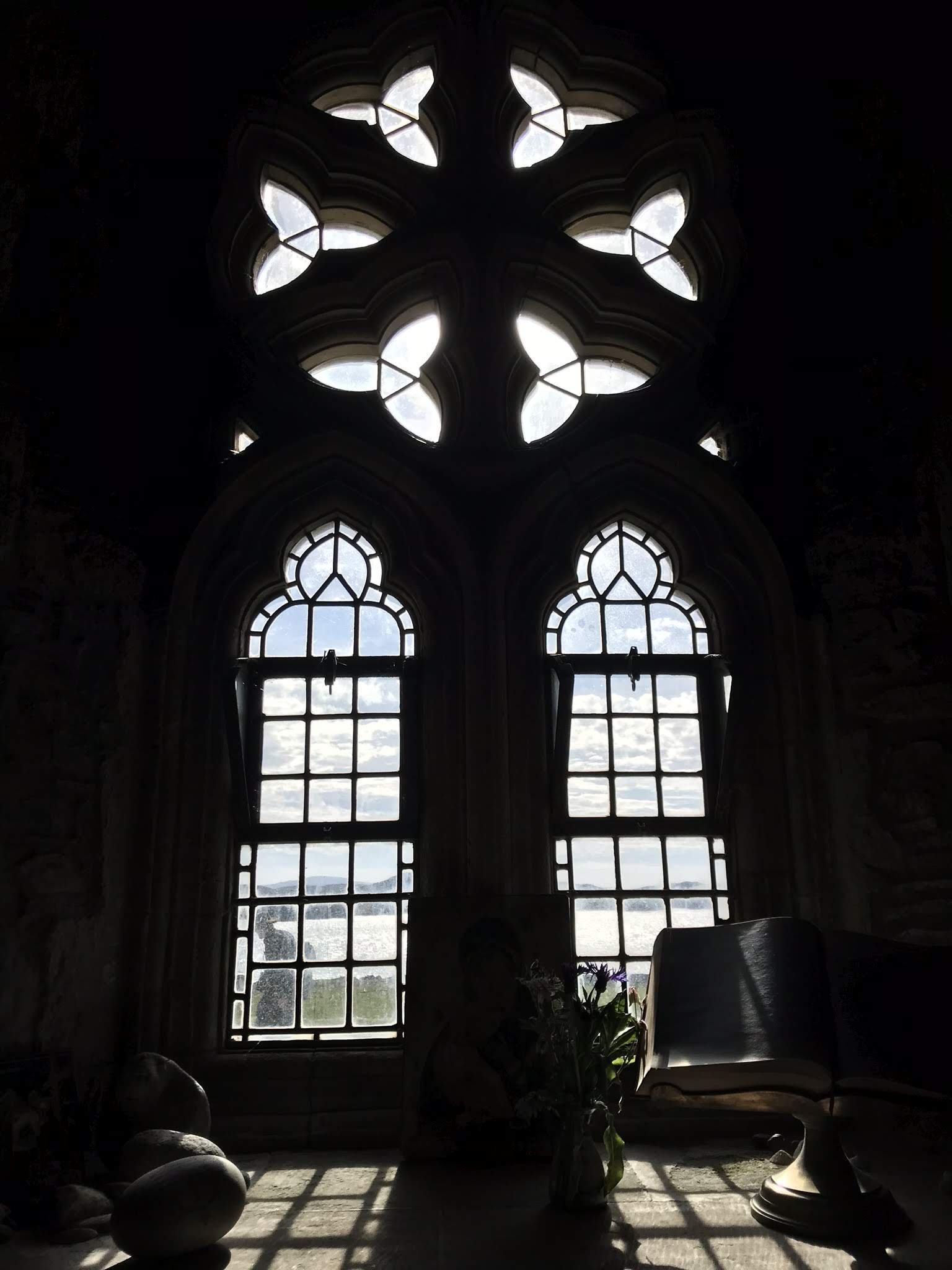From Two Viewpoints
Image Credit: Erin Jackson from 2023 Iona Pilgrimage
By Andrea Lingle
Our Father which art in Heaven
If we think to have a Father here below it is not he, it is a false God. We cannot take a single step toward him. We do not walk vertically. We can only turn our eyes toward him. We do not have to search for him, we only have to change the direction in which we are looking. It is for him to search for us. Simone Weil from “Concerning the Our Father”
Omnipresence can be interpreted as an extension of the divine substance through all spaces.
“God is in heaven”; this means that his life is qualitatively different from creaturely existence. But it does not mean that he “lives in” or “descends from” a special place.
And in the certainty of the omnipresent God we are always in the sanctuary. We are in the holy place when we are in the most secular place, and the most holy place remains secular in comparison with our place in the ground of life.
His sacramental presence is not the appearance of somebody who is ordinarily absent and occasionally comes. If one always experienced the divine presence, there would be no difference between sacred and secular places. The difference does not exist in the divine life. Excerpts from Tillich Systematic Theology, “The Meaning of Omnipresence”
Contradiction is a wonderful way to look for truth. In the quotes above, which, if you skimmed, you will want to scroll back and read, Weil seems to say that the true Divine presence is no where found within our reality and is well and truly out of reach and Tillich says something directly opposite. Two beautiful voices who dedicated their thinking lives to wrestling the ineffable to paper falling on opposite sides of a clearly drawn line.
These are my favorite theological conversation partners, and they do not agree.
Must one be abandoned? Must I make a final ruling between the two leaving the other behind? Shall I tally the points on either side and declare the winner? Can truth expand without distortion?
Is there any hope in the face of contradiction?
This theme will explore a theological conversation between Paul Tillich and Simone Weil through the foil of the Lord’s Prayer to explore and deepen our understanding of who God is. We will use these two voices to help find our way into the heart of what it means to form a concept of who God is. A concept of God is what the word God means to an individual or community. It includes a myriad of things that we won't be able to thoroughly explore, but I hope you will get thoroughly curious. I hope you will begin to ask who God is and what God cannot be. I hope you will pour over the quotes and allow them to tug you one way and another. This is meant to be a conversation space: a sketchbook. There will be no fully formed portrait at the close of this series of writings. There might even be more eraser on the floor than graphite on the page.
To allow two viewpoints to take up residence in your mind, to percolate, to sing in tandem, might make a mess or an alloy. You might get noise or counterpoint. To trust that the pathway of Divine discovery is a labyrinth of mystery is to open up to wisdom.

